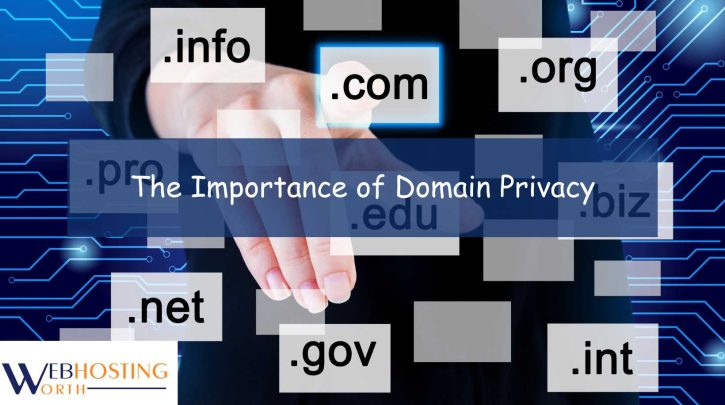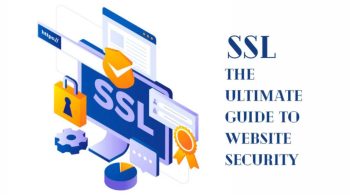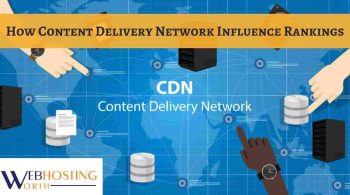In the vast landscape of the internet, your domain name serves as your digital address—an entryway to your online presence. When you register a domain, you’re required to provide personal contact information as part of the process. This information is then made publicly accessible through the WHOIS database, unless you take steps to protect it. In this blog post, we’ll delve into the significance of domain privacy and guide you on how to enable it to safeguard your personal data. Let’s explore why Domain Privacy is a crucial shield in the online world.
Understanding Domain Privacy
Before we dive into why domain privacy matters, let’s clarify what it entails. Domain Privacy, also known as WHOIS Privacy or Privacy Protection, is a service offered by domain registrars. It replaces your personal contact details in the public WHOIS database with generic information provided by the registrar. This means that instead of displaying your name, physical address, email, and phone number, the WHOIS record will show the registrar’s contact details.
The Importance of Domain Privacy
Now, let’s uncover why domain privacy is of paramount importance in the digital era:
1. Shielding Your Personal Information
When you register a domain without privacy protection, your personal contact details become accessible to anyone with internet access. This includes spammers, scammers, marketers, and even data miners. By enabling domain privacy, you keep this sensitive information confidential and out of the wrong hands.
2. Preventing Unwanted Solicitations
Without domain privacy, your email inbox and physical mailbox can become flooded with unsolicited messages, both digital and physical. Privacy protection helps reduce spam emails, phishing attempts, and unwanted postal mail.
3. Protecting Against Identity Theft
Your personal information can be a goldmine for identity thieves. Domain privacy acts as a safeguard against malicious individuals who might attempt to use your data for fraudulent purposes, including identity theft.
4. Avoiding Unwanted Contacts
Public WHOIS data can expose you to unwelcome phone calls and emails. With domain privacy, your contact details remain hidden, sparing you from unwanted communications.
5. Maintaining Professionalism
For businesses and professionals, domain privacy is essential to maintaining a level of professionalism. It ensures that your website visitors see your brand rather than your personal information when they look up your domain.
6. Safeguarding Your Home Address
If you operate your online business from home, domain privacy becomes even more critical. It shields your home address from being publicly associated with your business.
7. Protecting Your Online Reputation
Domain privacy helps safeguard your online reputation by reducing the risk of your contact details being misused in ways that could harm your personal or professional image.
How to Enable Domain Privacy
Now that we’ve established the significance of domain privacy, let’s walk through the steps to enable it for your domain:
Step 1: Log into Your Domain Registrar Account
Access your domain registrar’s website and log in to your account using your credentials.
Step 2: Locate Your Domain Settings
Navigate to the domain management section of your account. This is usually labeled as “Domain Management,” “My Domains,” or something similar.
Step 3: Select the Domain You Want to Protect
From the list of your registered domains, choose the one for which you want to enable domain privacy.
Step 4: Look for Privacy or WHOIS Protection Options
Within the domain management settings, search for options related to domain privacy or WHOIS protection. The wording may vary depending on your registrar.
Step 5: Enable Domain Privacy
Follow the prompts to enable domain privacy for your selected domain. You may need to confirm your decision.
Step 6: Confirm Changes
After enabling domain privacy, double-check that your WHOIS record now displays generic contact information instead of your personal details.
Step 7: Verify the Service Cost
Some registrars offer domain privacy as a free service, while others may charge an annual fee. Confirm the cost associated with enabling domain privacy and proceed with payment if necessary.
Step 8: Save Your Settings
Make sure to save your changes, and you’re all set! Your domain is now protected with domain privacy.
In a digital landscape where personal data is increasingly vulnerable, domain privacy stands as a crucial shield against privacy breaches, spam, identity theft, and unwanted solicitations. It’s a small investment that goes a long way in safeguarding your personal and professional information on the internet. So, take the necessary steps today to enable domain privacy and enjoy the peace of mind it provides in the vast online world.
Is Domain Privacy Worth It ?
Is domain privacy worth it? This is a question that frequently surfaces among those who own or manage websites.
Is domain privacy worth it? The answer, while not always straightforward, hinges on several factors worth considering.
Domain privacy, as implied by its name, is a service designed to protect your personal details from being openly visible in the publicly accessible WHOIS database. This database generally holds information like your name, address, email, and phone number connected to a registered domain.
But is domain privacy worth it?
For many individuals and organizations, the answer is a resounding yes. Here’s why:
Prevent Spam and Unwanted Requests: Domain privacy serves as a strong barrier, preventing your personal details from reaching spammers and marketers, leading to a substantial decrease in unsolicited emails, calls, and even physical mail.
Guard Against Identity Theft: Domain privacy, by safeguarding your contact information, helps mitigate the risk of your details being exploited for malicious intentions like identity theft or specific phishing attempts.
Enhance Professional Image: A domain without personal information displayed in WHOIS often projects a more professional and credible online presence, especially for businesses and organizations.
In conclusion, deciding whether domain privacy is worth it involves carefully evaluating your individual needs and online security concerns. For those who prioritize privacy, spam reduction, and overall peace of mind, the added cost of domain privacy often proves to be a wise investment.





